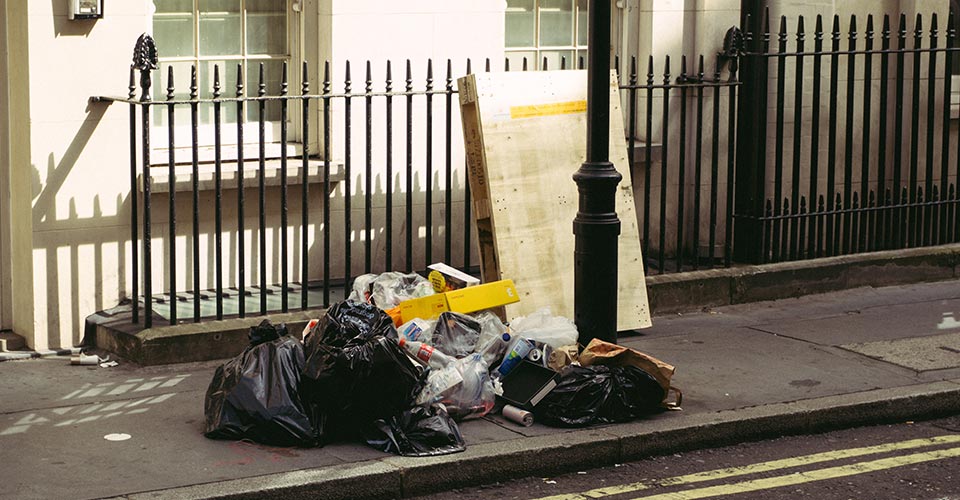Statistics show Fly-tipping Incidents for Business & Residential getting ‘out of control’

Fly-tipping is a crime, but the victim pays the bill for it. The tough sentences should be a deterrent. In reality, however, they only apply if the perpetrator is caught. This means that, realistically, the onus is on landowners to be aware of the problem and protect themselves.
The facts about fly-tipping
Fly-tipping has been a growing problem in the UK for years. There are a lot of factors behind it. Three, however, stand out. Firstly, there is the sheer amount of waste generated. The obvious example of this is plastic packaging. Some of this may, technically, be recyclable. In the real world, however, recycling it is not necessarily as easy as it should be.
Secondly, there is the difficulty and expense of disposing of waste legally. For example, councils may charge for “bulky uplift” collections. Frankly, this can encourage some people to go down the fly-tipping route.
Thirdly, there is the lack of effective enforcement. Technically fly-tipping is a crime. Both the owner of the waste and the fly-tipper can be prosecuted for it. In practice, any enforcement tends to come from local councils. Mostly, however, it’s landowners who end up dealing with it.
All of these issues were exacerbated by the effects of the pandemic. Many councils either suspended or restricted local waste collections. They also either closed or limited access to recycling centres and designated landfill waste sites. This happened at a time when many households were having clearouts if only to find something to do.
Fly-tipping is mostly a small-scale crime
There are, certainly, instances of large-scale fly-tipping operations. According to Professional Security, they shared statistics which showed from 2019/20, 34% of incidents were a ‘small van load’ and 28% were ‘car boot or less’. Only 3% of cases were tipper lorry load or more. Almost two thirds (65%) of fly-tipping cases involved household waste and it’s costing local tax payers up to a staggering £50m a year to clear up.
Putting these statistics together, it seems reasonable to assume that most fly-tipping is “man-and-van” operations and private individuals. This tallies with the fact that almost half of fly-tipping (45%) was done on highways (pavements and roads). It is, however, also a major problem in the countryside, presumably because this is harder to monitor effectively.
Fly-tipping often leads to more fly-tipping
Once an area is blighted by litter/waste it becomes easier for people to justify dumping more litter/waste in it. This creates a vicious circle, especially when the perpetrators are not caught. By contrast, people tend to be more careful about littering pristine areas.
Sadly, however, keeping an area clean (even at your own expense) will not deter everyone from littering/fly-tipping. There are always some inconsiderate people out there. Quite bluntly, for these people, the only real deterrent is the threat of being caught and punished.
Councils are stepping up their enforcement game in public areas, at least in urban environments. Realistically, however, when it comes to private property, the only real deterrent is effective security, particularly CCTV. Somewhat ironically, this does still have to be GDPR-compliant otherwise landowners could end up in legal trouble.
Improve premises security
However from a business perspective there are actions that can be taken to ensure you’re not a victim of fly-tipping and have to spend hundreds or thousands to clean up an issue that has nothing to do with you. Security gates, barriers and even security bollards can be a fantastic deterrent, restricting people from entering your premises to ‘dump’ there stuff.
On many occasion Newgate has dealt with fly-tipping issues by installing such security deterrents which have enabled businesses to keep their premises clear of unauthorised visitors by entering in either cars or vans.
This is especially useful if your premises doesn’t have 24/7 physical security via security guards or manned entrances. Secured access solutions can be another helpful alternative which requires visitors to have certain permissions to enter sites, anyone who doesn’t therefore cannot enter.








